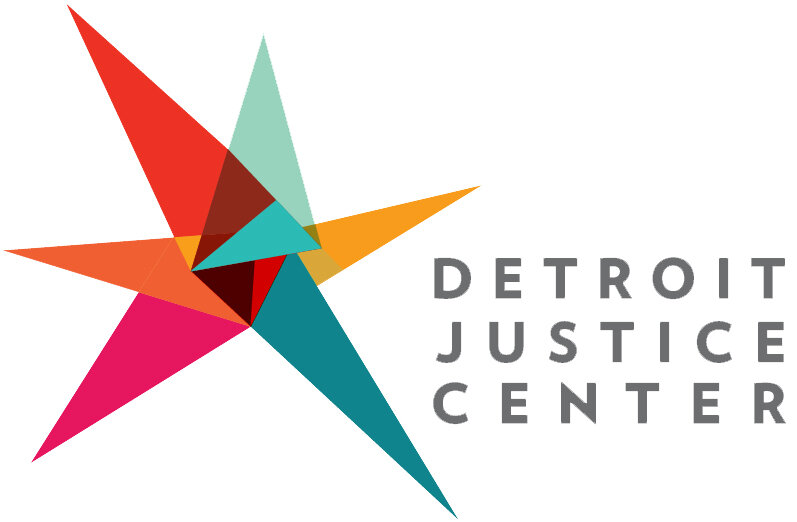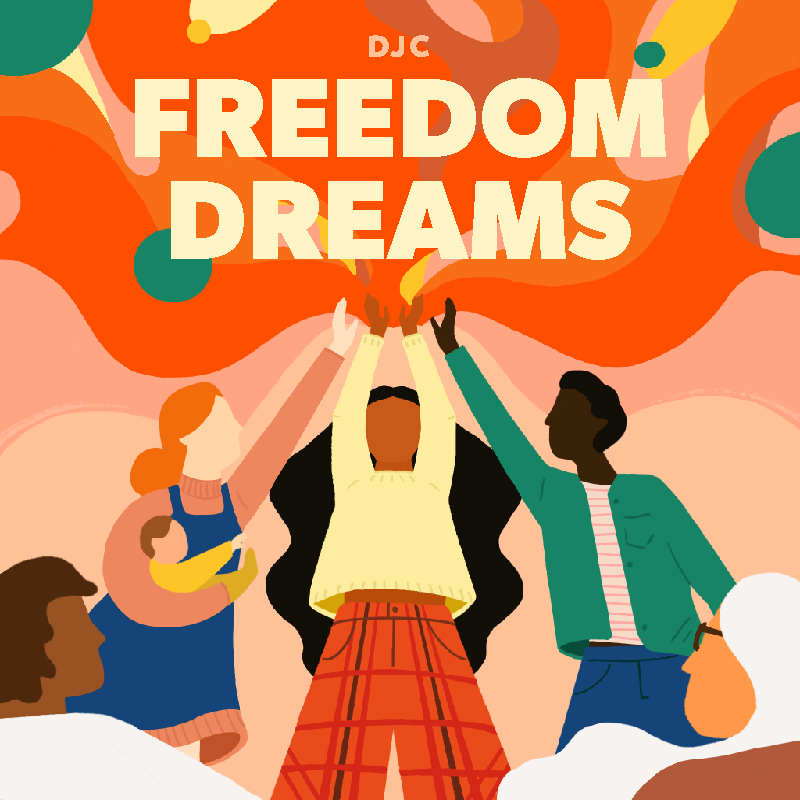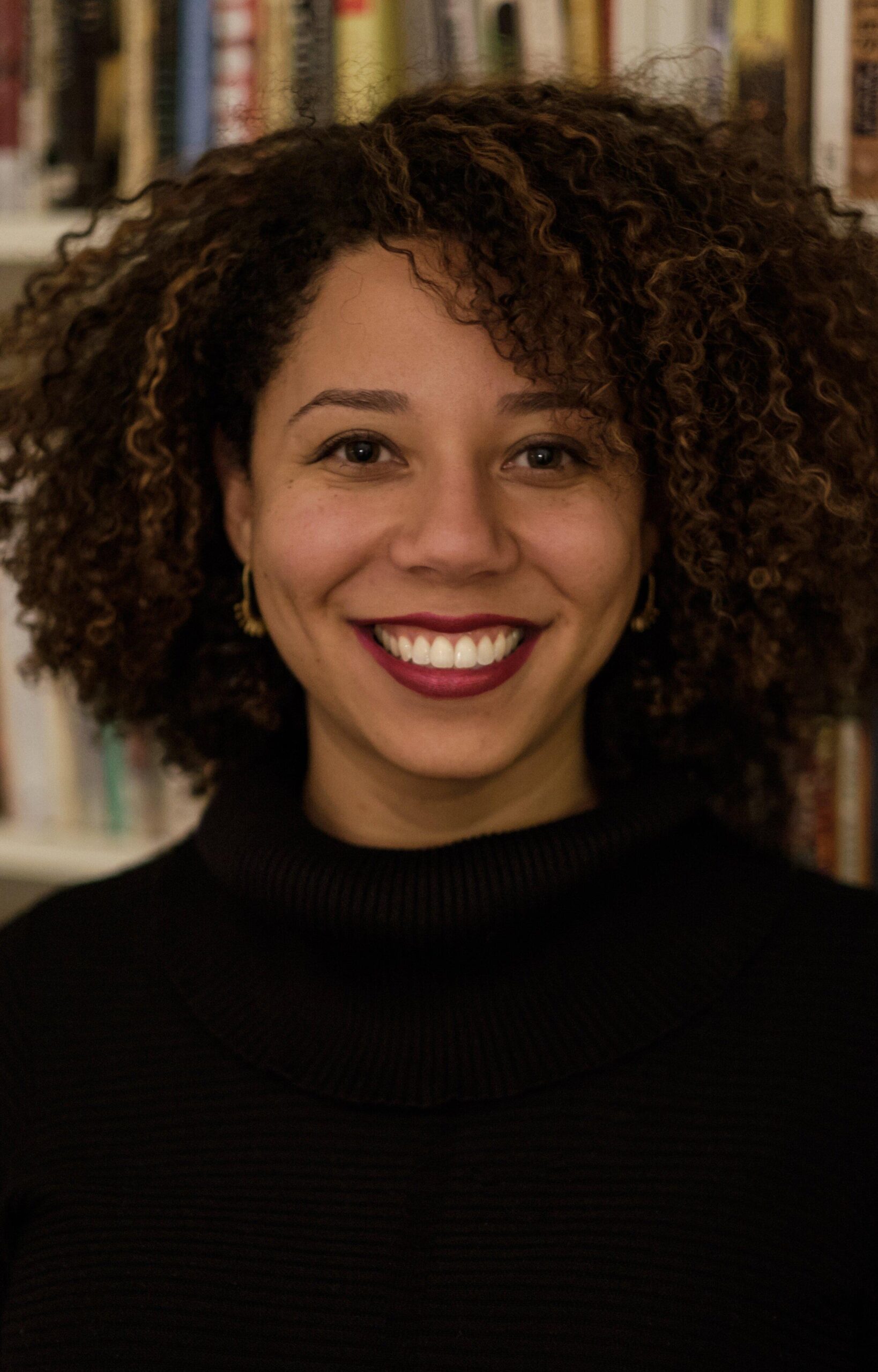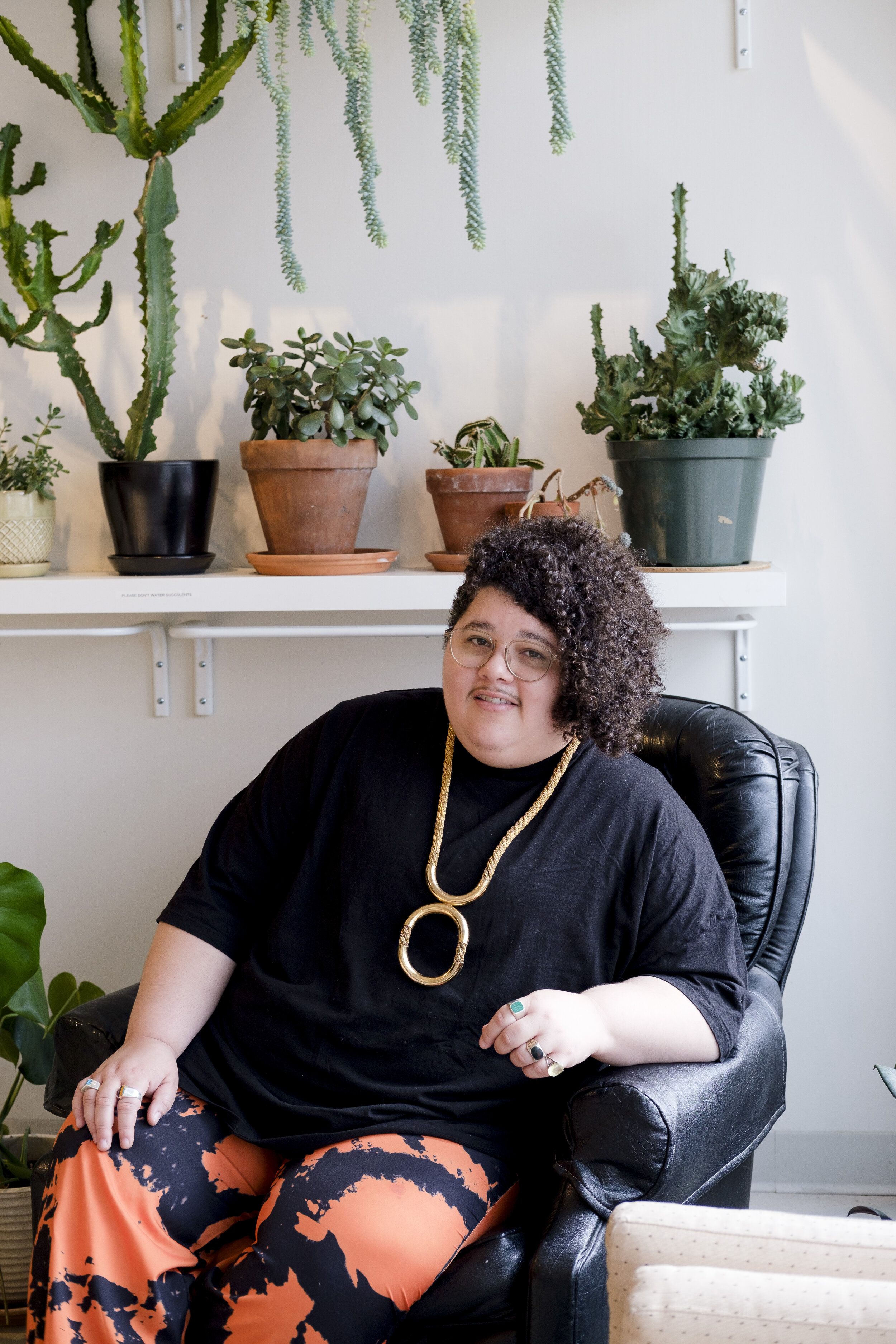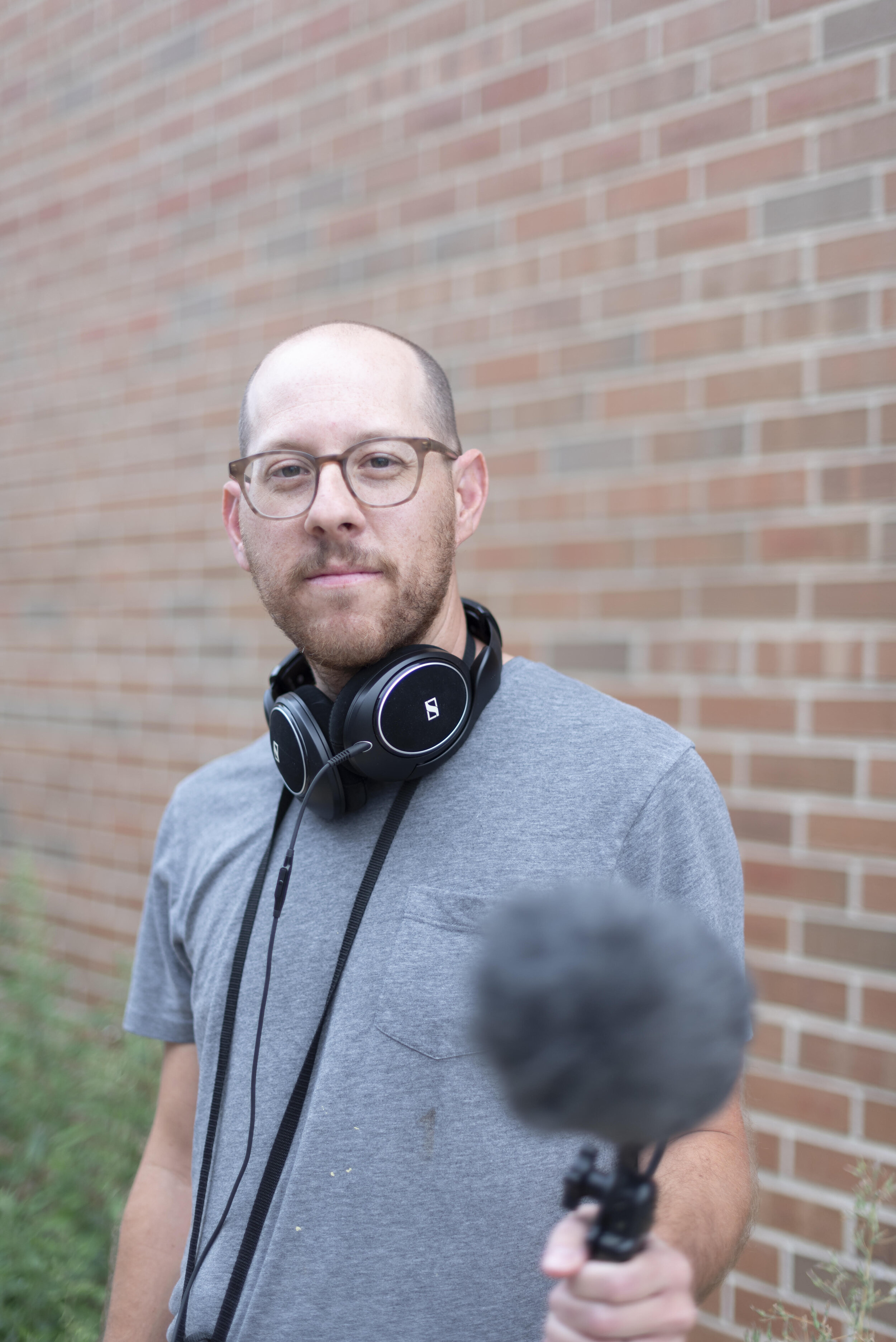In this inaugural episode, Freedom Dreams introduced you to the team behind the podcast. Meet the Freedom Dreams team!
Amanda Alexander (co-host and producer) is a lawyer, writer, historian and Founding Executive Director of the Detroit Justice Center. She and her team work alongside community-based movements to end incarceration and build thriving and inclusive cities. Originally from Michigan, Amanda has worked at the intersection of racial justice and community development in Detroit, New York, and South Africa for two decades. Amanda is also a Senior Research Scholar at University of Michigan Law School and was the 2021 Givelber Distinguished Public Interest Lecturer at Northeastern Law School, where she taught Movement Lawyering. She has served on the national steering committee of Law for Black Lives and is a board member of the Center for Constitutional Rights and the James and Grace Lee Boggs Center to Nurture Community Leadership. Amanda’s advocacy and research have won the support of an Echoing Green Fellowship, Soros Justice Fellowship, and Fulbright-Hays Fellowship. Amanda received her JD from Yale Law School and her PhD in international history from Columbia University. Her writing has been published in The Globe & Mail, Detroit Free Press, Boston Globe, Truthout, Howard Civil & Human Rights Law Review, Michigan Journal of Race & Law, Harvard Journal of African-American Public Policy, Review of African Political Economy, and other publications. One of her freedom dreams is for the U.S. to shift our abundance away from policing and incarceration and into universal childcare, affordable housing, education, and community hubs for healing and wellness.
Casey Rocheteau (co-host and producer) is an author, educator, and multidisciplinary artist with a background in historical studies. Born in Hyannis, MA, they currently reside in Detroit. They are a 2021 Kresge Literary Arts Fellow and were the recipient of the 2021 Noemi Book Award. They have received fellowships from Cave Canem, Callaloo Writers’ Workshop, and Bread Loaf in Sicily. In 2014, Rocheteau created the Shrine of the Black Medusa Tarot. Casey’s work has been featured in I-D Magazine, Michigan Radio, Poets.org, The Offing, LitHub and Apogee Magazine. Casey is the Communications Manager for the Detroit Justice Center. One of Casey’s freedom dreams is to live in a world where queer and trans youth are legally, emotionally, spiritually, and physically protected from adults who might attempt to litigate their identities.
Zak Rosen (producer) is the host of The Best Advice Show. He’s also the editor of How to Survive the End of the World and the host of Pregnant Pause with Zak and Shira, which chronicles his and his wife’s decision to bring a child into this strange world of ours. His radio features have been heard on NPR, CBC, BBC, PRI, APM, Deutsche Welle and Radio Helsinki. He was a staff producer on NPR/PRX’s State of the Re:Union and before that, a co-founding producer of WDET’s Detroit Today. He facilitates workshops and consults with museums, high schools, universities, and community organizations on various story-based projects. He’s also a counselor at Radio Campfire, a live listening event series and a podcast coach at the Detroit Writing Room. One of his many freedom dreams is to live collectively among many families in an old, large building in Detroit featuring grapevines and an indoor gym (for winter dodgeball).
Zak’s headshot by Gabriela Baginski for Signal Return.
Episode Transcript
Amanda Alexander:
I am Amanda Alexander, the founding executive director of the Detroit Justice Center.
Casey Rocheteau:
And I’m Casey Rocheteau, the communications manager of the Detroit Justice Center.
Amanda Alexander:
This is Freedom Dreams, the podcast where we believe another world is possible.
Casey Rocheteau:
And we’re talking to the people who are building it.
Amanda Alexander:
And today on Freedom Dreams, we’re giving you a sneak peek of our first season that will bring you conversations with brilliant folks who inspire us, who we work alongside, and who embody the spirit of abolition as a project of creation, folks who are re-imagining everything from how we educate each other, how we feed ourselves and build resilient, local food systems to how we approach mental health.
Casey Rocheteau:
And for those of you unfamiliar with the Detroit Justice Center, we’re an abolitionist, legal nonprofit in Detroit. And part of why it made sense for us to do an interview podcast is that everything we do depends upon conversations. We can’t build or work in service to movements without building relationships and deeply listening to the concerns, demands, questions and triumphs of our communities. So it’s important for us to take this time, create an archive, reflect on people’s work and hope that it inspires other people along the way. Amanda, what would you say you hope people take away from this first season of Freedom Dreams?
Amanda Alexander:
I want people to understand that so much more is possible, and that we can learn from the people who are already doing that work, who are already doing the hard work of creating a better world right now. There’s so much talk out there about what needs to be torn down. There’s talk about ending mass incarceration or abolishing police and immigration enforcement. And don’t get me wrong, that is so important. We have to have clear demands about what needs to end now. But movement in history also shows us, and wise elders and young people continue to show us all the time, that it’s just as important to have an affirmative vision of what we’re fighting for and the world that we are trying to create.
Amanda Alexander:
If we put our attention on the vision of the world we want to live in, we can move toward it with joy and excitement. And that’s contagious. Making a new world is about creating new ways of being. And we can learn from people who are already creating the solutions and communities that we need. Casey, what kinds of conversations can people expect this season?
Casey Rocheteau:
Well, this season, we’re going to talk about everything from youth-led healing circles here in Detroit.
Speaker 3:
When you’re united with more than a group of people, and they’re telling you, “I go through that too. That’s me too. I relate,” it can help you get through it too.
Casey Rocheteau:
To the debt owed to black farmers in this country.
Speaker 4:
Because if you can’t get the loan on time, that means you can’t get the seeds on time.
Casey Rocheteau:
To how to close the city jail and build something community-driven in its place.
Speaker 5:
Anything that a person may need, they can come in there and get that service in a central location downtown.
Casey Rocheteau:
We talked to multiple organizers working to defund police and democratize city budgets.
Speaker 6:
This was the question that I had as a 16-year-old. How do I get the same feeling when I walk into my neighborhood grocery store? And I had a good neighborhood grocery store. How do I get the same feeling of welcome here when I walk into city hall?
Casey Rocheteau:
We’re going to hear from all kinds of incredible people about how they envision their work and what they hope their legacies will be. So, Amanda, the question we ask at the end of every one of our interviews is, what are your freedom dreams? And I want to hear what your freedom dreams are.
Amanda Alexander:
So I feel indebted to people five generations ago who were laser-focused on getting free. They were not trying to reform slavery or reform Jim Crow. They wanted freedom. And I hope that our work helps movements to be bold and to demand everything that we need. Ultimately, my freedom dream is that we have remade every part of society, so that it’s possible for black people, indigenous people, trans people, all of us to have all of the elders that we’re supposed to have, instead of losing people prematurely to things like police killings. I want us to have remade society so that we can just delight in watching each other grow old. I want a day when we can just have lives of ease and joy and be sitting on our rocking chairs on the porch and laughing together when we are all 80. Casey, what’s your freedom dream?
Casey Rocheteau:
Oh, that’s a tough act to follow. I think for me, I think about what I hope my work inspires other people to do is be as free as they possibly can be, be as joyful as they can be, in whatever it is that they choose to do. And I hope that also there’s … I don’t know if this is necessarily my work, but my freedom dream for everyone is that we decentralize this idea that productivity is the cachet of being a human being on this planet.
Casey Rocheteau:
And I do think obviously there’s a lot of work to be done, but there’s so much to be said for rest, for prioritizing one’s health, for spending more time living your life and loving the people around you and laughing than there is feeling like you’ve got to accomplish the next big task or achieve some big goal or project.
Casey Rocheteau:
So yeah, I hope 100 years from now, we’ve somehow managed to end incarceration. I think, for me, it’s ending incarceration, stem the tide of global warming, and we’re able to just be playing in the ocean and eating popcorn, not worrying about every single day.
Casey Rocheteau:
There’s just so much that weighs on us. And I want that sort of … I know I just said that almost jokingly as playing in the ocean, but think about it, unless you’re deadly afraid of the ocean. For me, that’s a space where I get to be free, and there’s no time where I’m in the ocean and I’m not smiling and happy and just not thinking about all of these concerns. So for me, that’s a big part of what I look for in the future, and I hope that my work inspires that in some way or another.
Amanda Alexander:
Thank you, Casey. I love this emphasis on practicing our freedom in the here and now. We are so excited for you all to hear our first season, and we hope you’ll follow us on Instagram at Freedom Dreams Pod, and visit our website, freedomdreamspodcast.org.
Casey Rocheteau:
You can also follow us on Twitter at Freedom Dream Pod, singular dream. Listen to us wherever you get your podcasts. We’d love it if you’d dropped us a line on any of these platforms and tell us what your freedom dreams are.
